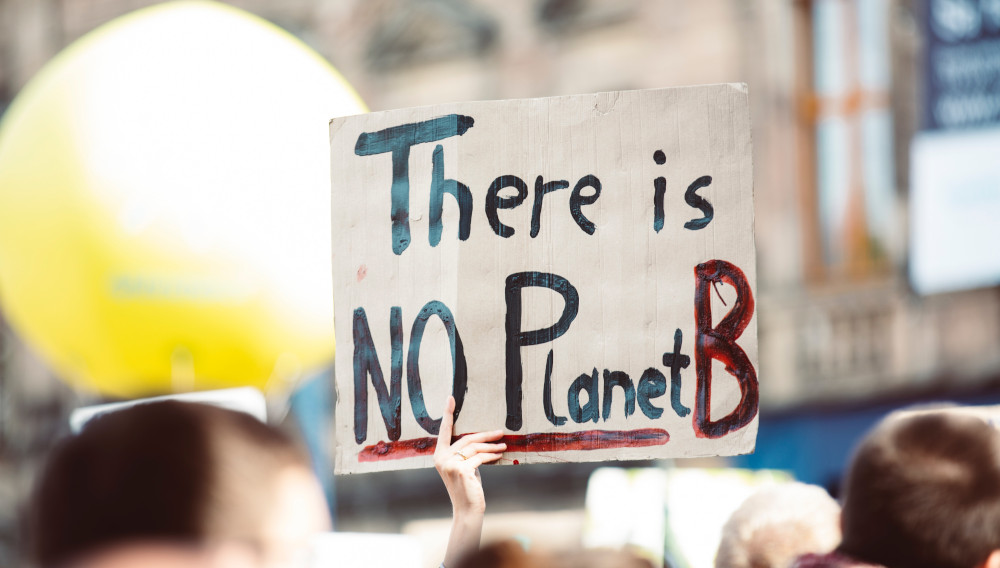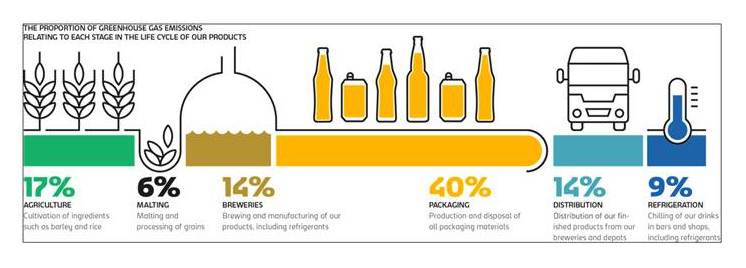The bigger picture: IBD Masterclass “Sustainability”
France | The 2019 word of the year is “climate emergency”, according to Oxford Dictionaries. Thanks to Greta, Fridays for Future and Extinction Rebellion, many people have been thrown into abject gloom. In escalating crisis mongering, climate warriors have told us that “We probably don’t even have a future anymore.”
Answering to Extinction Rebellion’s call that “our survival is going to take everything we’ve got”, consumers in the rich countries have begun to frantically investigate their own behaviour and how it affects climate change. But is the advice “Don’t invest in fossil fuel companies. Don’t drive. Don’t fly. Reduce, re-use, refurbish, recycle everything” really feasible? When will we be told to go without central heating, gas stoves, electric lights and smart phones?
Brewing companies, with some relief, will have taken note of The Guardian’s list of the world’s top 20 polluters, which was published in October 2019. They were not on it. Fossil fuel companies are responsible for a third of all carbon emissions globally.
Brewers reduce their carbon footprint
This is not to say that brewers can blithely ignore their own impact. All have issued programmes to assess and reduce their carbon footprint, whether it is called “Drop the C” (Heineken), “Zero” (Carlsberg), or “Championing Low Carbon Technology” (AB-InBev).
As packaging is the biggest contributor to carbon emissions along the value chain – not to mention the mounting piles of waste - various headline-grabbing initiatives were launched this year: from Carlsberg’s paper bottle, which is still being trialled, to Guinness, Carlsberg, Heineken, Bud, and Coke promising to ditch their plastic six-pack rings.
Obviously, even small measures can add up. But it is imperative for brewers not to lose sight of the big picture, which is crafting a sustainable future for their businesses.
The sustainability revolution
The IBD’s decision to focus on the theme of “Sustainabilty through Technology” at its 2019 Masterclass, which has hosted by Carlsberg in Obernai, France, in September, proved pertinent. The urgency of climate change notwithstanding, the sustainability revolution already underway will rival the agricultural and industrial revolutions in the way it will transform society.
As the IBD says, “innovation and creativity will be needed to develop radical, new products, and technologies that are less damaging to the environment and generate new businesses and jobs. In a nutshell: In a world of increasingly limited resources, how do we rethink what it means to win so that profit comes not from gaming the system but from changing the game for everyone?
The full-day seminar, which was expertly introduced and chaired by Prof René Schmidpeter from the Cologne Business School, Germany, highlighted a range of schemes and technologies, which could have a positive impact on our environment, our communities and our people.
Befitting the theme, presentations were diverse. They ranged from innovative packaging (Carlsberg), to setting up a sustainable brewery (Purity Brewing Company in the UK) and maltings (Coopers Brewery, Australia), to environmental initiatives by the Scotch Whisky industry and HR challenges facing the brewing industry (Super Bock Group, Portugal).
Measuring performance: old vs new KPIs
All presentations underlined Prof Schmidpeter’s takeaway that to lead a company by turnover and profit does not work any longer, and that new Key Performance Indicators (KPI) are needed that measure a company’s purpose as well as its positive effect on society.
The IBD Masterclass in Obernai was the fourth after the Masterclasses on “Quality” (2016, hosted by TUM Weihenstephan, Germany), “Sensory and Consumer Science (2017, hosted by Stiegl Brewery, Salzburg, Austria) and “Innovation” (2018, hosted by Pilsner Urquell Brewery, Pilsen, Czech Republic).


